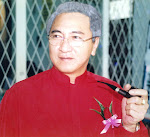As Christians prepare to celebrate Christ's resurrection at Easter, they must first remember His suffering and death. Several liturgies during Holy Week, considered the most important week in the church's liturgical year, provide the opportunity to do so.
HOLY WEEK
Holy Week is the week which precedes the great festival of the Resurrection on Easter Sunday, and which consequently is used to commemorate the Passion of Christ, and the event which immediately led up to it. It is also known as the “week of lamentation’ during the interval between Palm Sunday and Easter Day , and is known par excellence as Holy Week.
Palm Sunday
The sixth and last Sunday of Lent and beginning of Holy Week, a Sunday of the highest rank, not even a commemoration of any kind being permitted in the Mass. In common law it fixes the commencement of Easter duty.
Holy Week, the last week of Lent, includes the religious holidays of Holy Thursday, Good Friday and Holy Saturday referred to as the Triduum – the three separate days celebrated as one feast.
Holy Thursday Mass recalls Christ's Last Supper and the institution of the Eucharist. It also includes the washing of the feet ceremony.
Jesus offered His life as a sacrifice for the remission of the sins of humankind, choosing the most cruel and humiliating death: crucifixion.
The Holy Father in his general audience this morning (March 31) explained that, “There exists an indissoluble link between the Last Supper and the death of Jesus", explaining how in the Upper Room "Jesus offered His Body and Blood (that is, his earthly existence, Himself), anticipating His own death and transforming it into an act of love. And so death, which by its nature is the end, the destruction of all relations, is made by Him an act of communication of Self, an instrument of salvation and a proclamation of the victory of love".
Holy Saturday is considered a day of silence and prayer. This is the time of expectation and hope, believers are invited to prayer, reflection and conversion, also through the Sacrament of Reconciliation, so that, intimately renewed, they may participate in the celebration of Easter.
No Mass is celebrated until that evening at the Easter Vigil, which takes place after sundown. That silence will be broken by the cry of Alleluia, announcing the resurrection of Christ and proclaims the victory of light over darkness, of life over death. The Church starts its joyous occasion in the meeting with her Lord, entering the day of Easter which the Lord inaugurated by rising from the dead.
It is at that Mass that the church welcomes new Catholics.
Families are encouraged to attend all three liturgies to experience the whole thing like a three-part movie.


.jpg)




No comments:
Post a Comment